Established in 2003, EDCTP has grown significantly over the past 20 years. During this period, EDCTP programmes have established a model for how equitable research partnerships should operate.

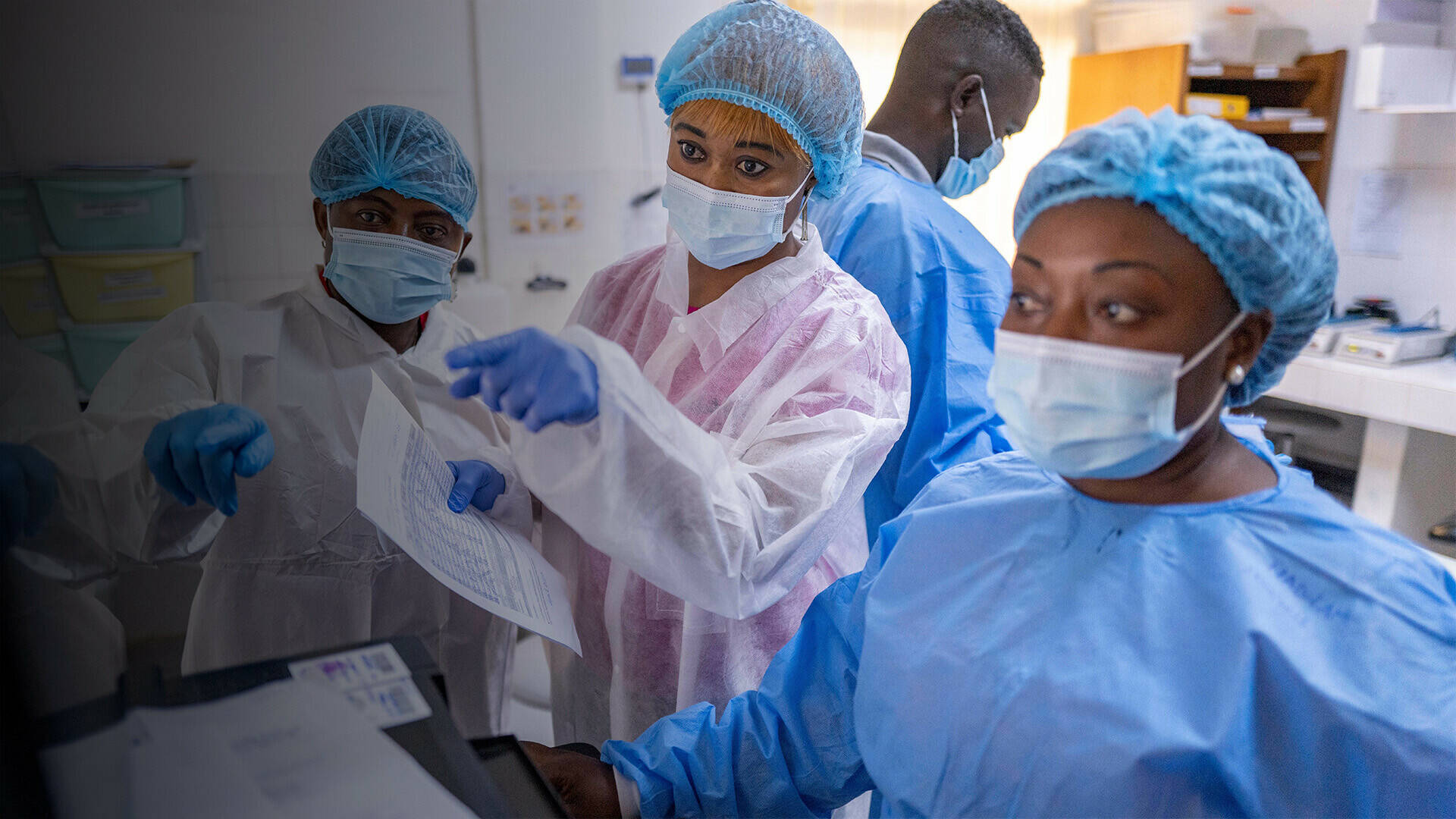
Leveraged €527.75 M in cash and in-kind support from partners (€72.69M EDCTP1; €455.06 M EDCTP2).

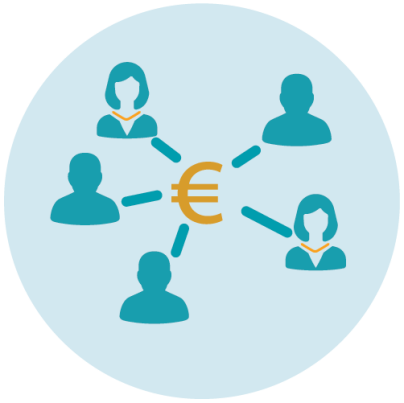
Received €246.80 M in cash contributions from European member countries (€50.44 M EDCTP1; €196.36 M EDCTP2).
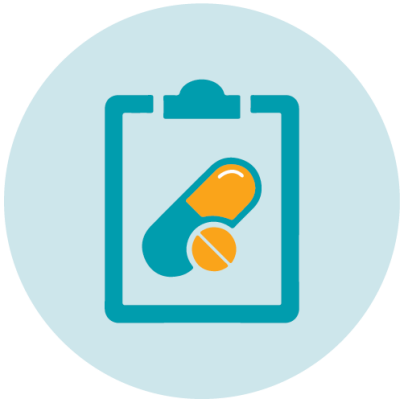
Contributed to health systems strengthening, for example through two new consortia building national pharmacovigilance capacity in six sub- Saharan African countries.
Established an EDCTP Alumni Network and online platform.

Supported epidemic preparedness networks spanning 18 sub-Saharan African countries.
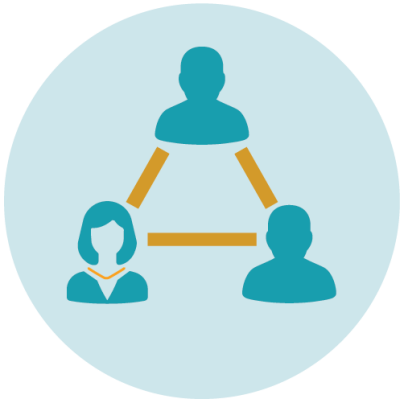
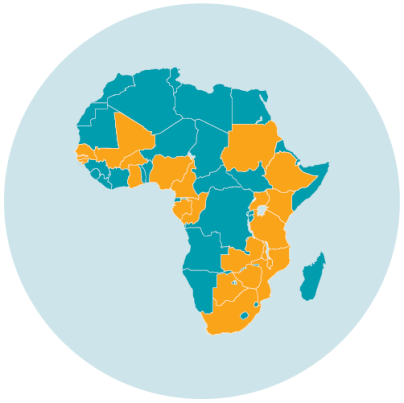
Established four regional Networks of Excellence spanning 21 countries and 64 institutions.

Created a Pan-African Clinical Trials Registry, now with more than 1,000 registrations.
Funded 121 grants to enhance ethics and regulatory capacity in sub-Saharan Africa (75 EDCTP1; 46 EDCTP2).
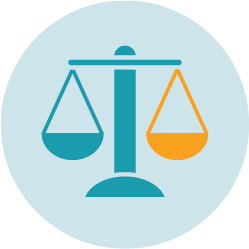
Contributed to the EU TRUST Project, which is developing a global framework and practical tools to ensure the application of consistently high ethical standards in research.

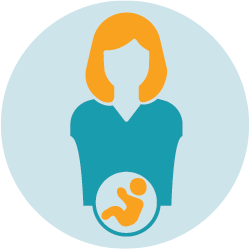
Supported 58 studies targeting pregnant women and their children (9 EDCTP1; 49 EDCTP2).

Supported 150 phase II and III clinical studies of drugs and vaccines (52 EDCTP1; 98 EDCTP2).
Supported 477 clinical studies (102 EDCTP1; 375 EDCTP2).

Generated more than 2,000 peer-reviewed publications (>700 EDCTP1; >1,300 EDCTP2).

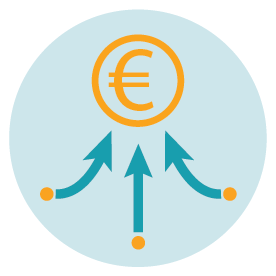
Invested €1.03 Bn to support 692 projects (€208 M EDCTP1; €824.30 M EDCTP2).
The programme has also made multiple efforts to provide opportunities to countries with less well-developed research bases. Regional Networks of Excellence have incorporated institutions from such settings in their networks and the Senior Fellowship Plus scheme enables experienced researchers to nurture colleagues from less well-established institutions. Efforts have also been made to ensure researchers from French- and Portuguese-speaking countries are not disadvantaged.
The full impact of EDCTP2 has yet to be felt, as many studies are still completing and analysing data. Even now, however, it is clear that it has delivered on its promises, and has laid a solid foundation for even greater progress during the expanded Global Health EDCTP3 programme.
The principles of equity, diversity and inclusion have also been an important focus. The representation of women has been carefully monitored, in terms of applicants and reviewers. Although women are underrepresented in sub-Saharan African research, particularly at more senior levels, EDCTP has achieved good representation, including in project leadership and success in fellowship funding – 40% of EDCTP2 fellows, for example, are women.
EDCTP2 has been dedicated to the pursuit of equitable research partnerships. This extends all the way from the governance of the EDCTP Association, an equal partnership between countries in Europe and sub-Saharan Africa, through to the expectations of how international research partnerships funded through EDCTP2 will operate.
The evaluation also noted that the EDCTP2 programme has been highly effective at ensuring that projects are completed and generate data (although the COVID-19 pandemic inevitably delayed many projects). As illustrated elsewhere in this Annual Report, as projects conclude and results are disseminated, it is clear that EDCTP is having a major impact on the development and implementation of new medical interventions for poverty-related diseases, including vaccines, drugs and diagnostics.
Its unique focus on capacity building has also had tangible benefits. As summarised in a recent report, EDCTP2 has supported more than 362 fellows, at all stages of a research career, including influential research leaders and up-and-coming scientific talent. The EDCTP fellowship programme is ensuring that African researchers can develop their careers within Africa, while remaining connected to global knowledge networks. This funding has an important multiplier effect, as each fellow supervises and mentors other researchers, growing the size of the science base.
In addition, the programme has taken a holistic view of capacity building, focusing also on creating a supportive environment for high-quality clinical research. It has achieved substantial progress in advancing ethics review and regulatory authority capabilities in sub-Saharan Africa, which will be essential if the number of clinical trials organised in the region is to grow further.
Notably, in its supplementary report on implementing World Health Assembly resolution WHA75.8 on building clinical trial capacity, WHO highlighted EDCTP2 as an initiative that had successfully developed capacities and supported local leadership in many African countries.
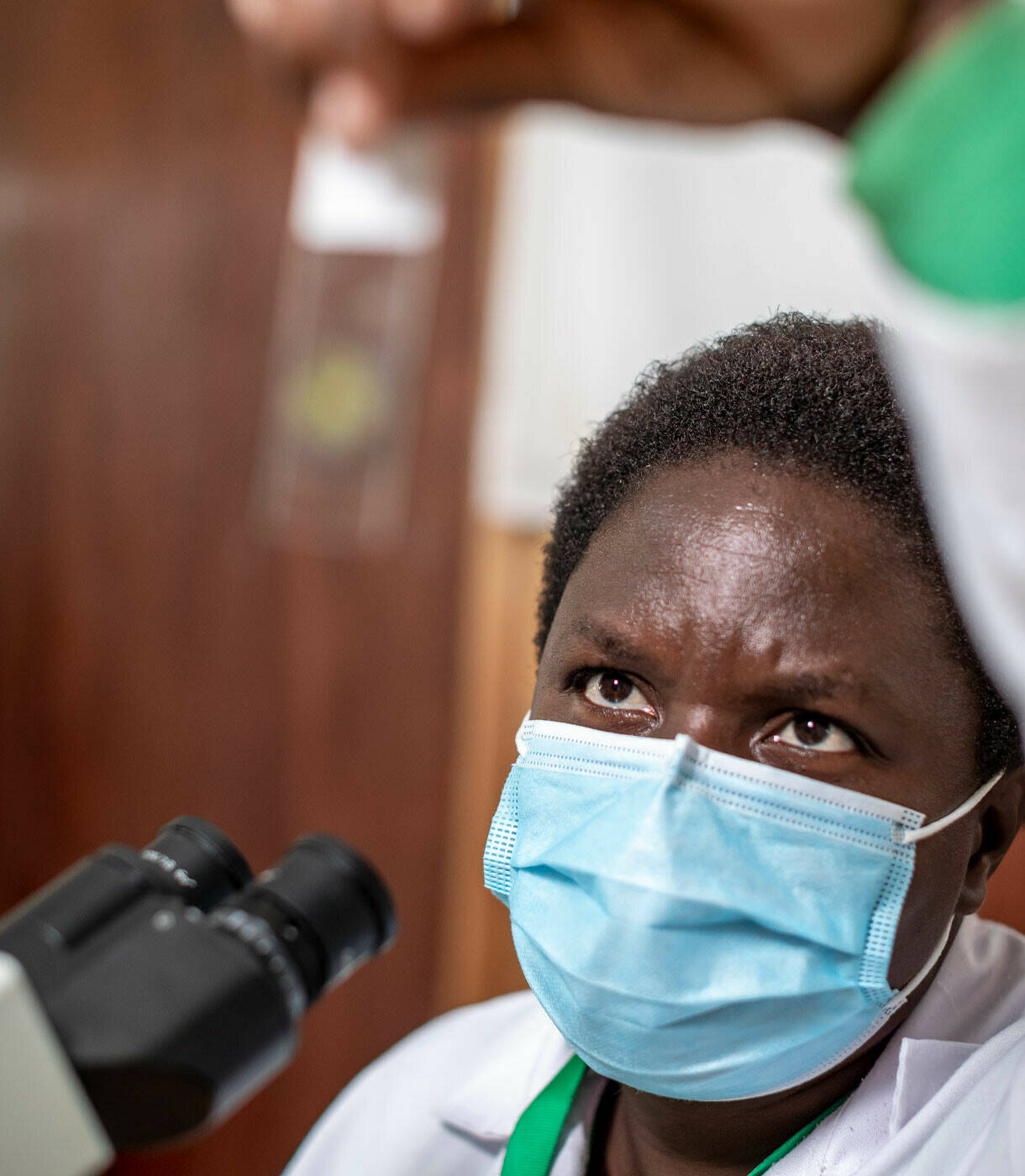
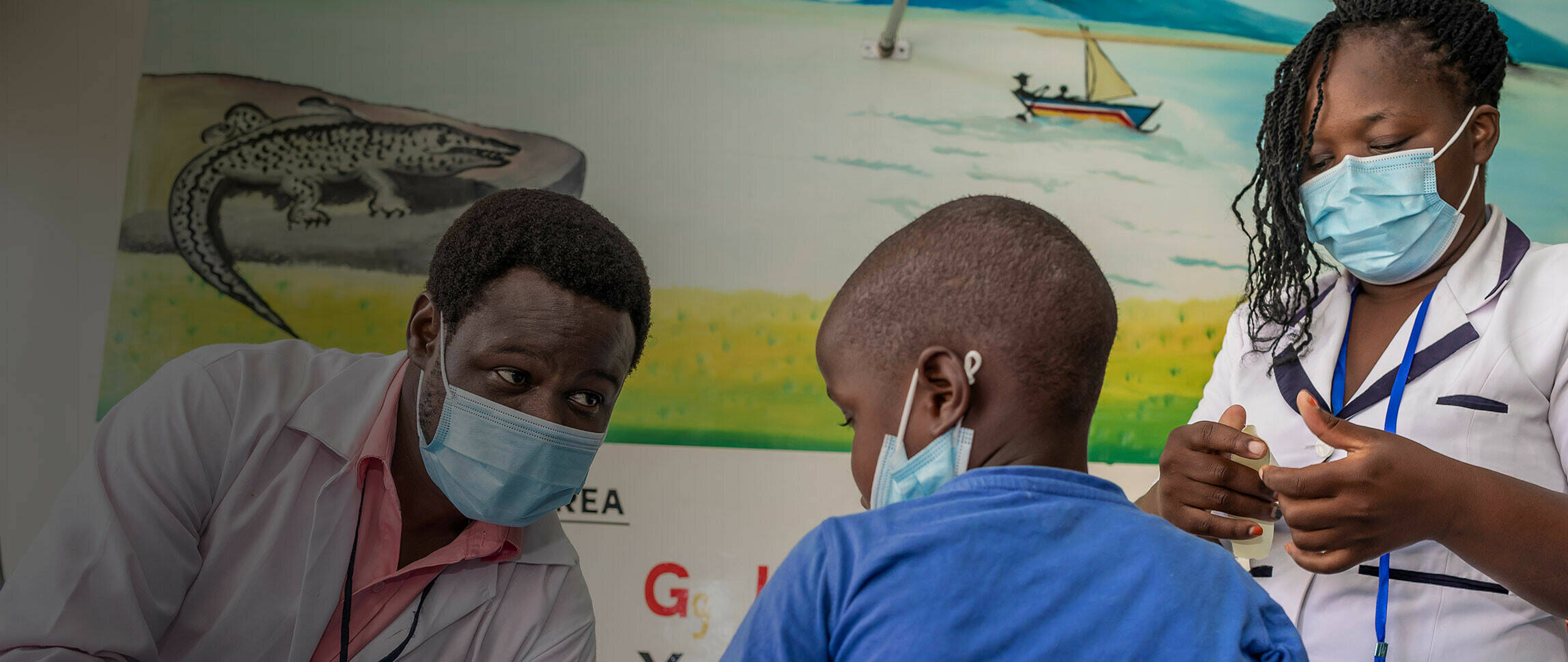
The evaluation praised the programme’s adaptability and its responsiveness to the needs of populations and health research systems in sub-Saharan Africa. This has been underpinned by strong African representation in all aspects of its governance, as well as extensive consultation and partnerships with African stakeholders.
EDCTP2 was also noted to have established a clear niche in the global health ecosystem, through its focus on late-stage clinical trials and implementation research, which are generally less well supported by other funders, and through its prioritisation of under-served populations. These include women and pregnant women, people with co-infections (including HIV infections) and co-morbidities, and children and adolescents.
The programme was acknowledged to have responded to past recommendations on efficiency and was found to have been highly effective in supporting activities consistent with its objectives. It has had substantial added value, providing ways to support activities beyond the scope of individual funders through a strategic framework with which national funding activities can be aligned.
scroll down
Over the past two decades, EDCTP has funded collaborative research partnerships that have advanced multiple much-needed interventions against poverty-related diseases affecting sub-Saharan Africa. Collaborative research culture has been grown and nurtured through four regional Networks of Excellence covering half of the countries in sub-Saharan Africa. EDCTP has also made critical contributions to the development of research capacity in the region, particularly through its comprehensive fellowship programme. Seven more countries joined the EDCTP Association in 2023 for participation in Global Health EDCTP3 – Benin, Guinea-Bissau, Liberia, Malawi, Sierra Leone, Somalia and Zimbabwe. This brings the total number of Association member countries to 43, including 28 African countries.
An independent evaluation of the EDCTP2 programme (covering the period 2017–2021), commissioned by the European Commission and published in 2023, provided a highly positive assessment of EDCTP’s activities across a range of criteria including relevance, coherence, efficiency, effectiveness and added value. The report highlighted EDCTP’s contributions towards the building of equitable research partnerships between Europe and sub-Saharan Africa, and how EDCTP’s activities have underpinned major advances in health and strengthened research capacity in sub-Saharan Africa.
EDCTP has always positioned itself as a partnership of equals, and this covers both the governance of the programme – where European and African partners have equal status – and in the operations of individual research collaborations. This is a highly effective model, and one that has helped to deliver results that could not have been achieved by partners working alone.
scroll down
Established in 2003, EDCTP has grown significantly over the past 20 years. During this period, EDCTP programmes have established a model for how equitable research partnerships should operate.
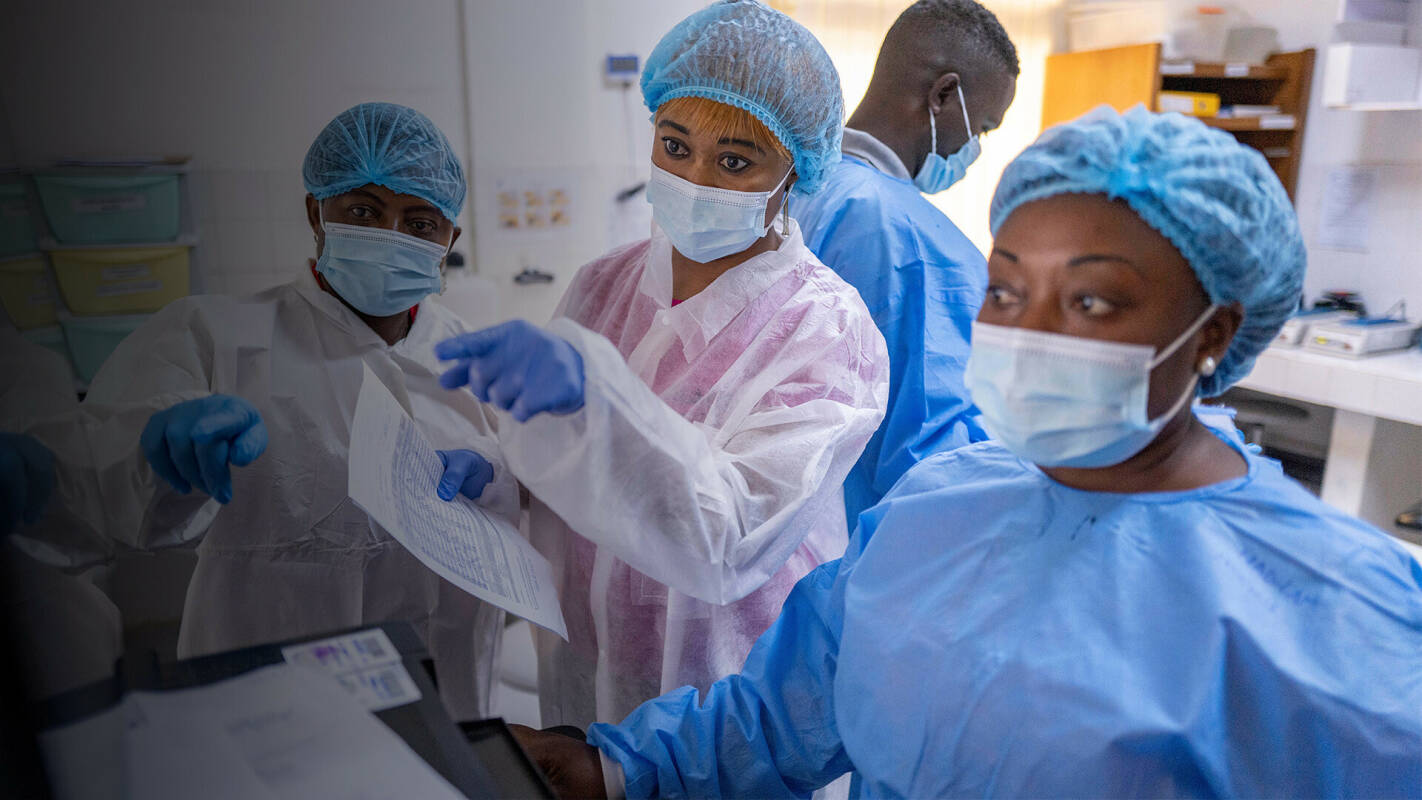
- The Dutch SME Delft Diagnostic Imaging, involved in the EDCTP-funded TREATS project, offers free-of-charge its Artificial Intelligence diagnostic software, CAD4COVID, to help triage COVID-19 cases in the TREATS-COVID project. This project takes advantage of the TREATS study to rapidly gain a better picture of COVID-19 transmission in an urban setting in Zambia.
- The Chinese company Nanjing BioPoint Diagnostics provides in-kind support through reduced pricing of Dried Plasma Spots for the COREP project that studies transmission in rural settings at two health and demographic surveillance sites in Kenya and South Africa.
- German companies Midge Medical and Tib MolBiol will contribute lab supplies and personal protective equipment (PPE) and real-time RT-PCR kits to the Suitcaselab project that is evaluating an innovative ‘laboratory-in-a-suitcase’ for rapid detection of SARS-CoV-2 infections
- The AfriDx project is adapting an innovative molecular testing platform, known as PATHPOD, that is accurate, easy to use at a point of care, and gives results within an hour. It is also developing novel ‘dipstick’ tests for detecting different types of SARS-CoV-2-specific antibodies. To promote sustainability, TATAA Biocenter is leading the project team’s efforts to establish manufacturing capacity for the tests in the region.
- The COVADIS project is evaluating both antigen and antibody tests, including a novel rapid point-of-care antigen test COVID-19 Ag Respi-Strip™ developed by Coris BioConcept. The project will also establish a platform that will enable antibody responses to be assessed using convenient dried finger-prick blood samples.
- The ITAILCOVID-19 project is assessing a range of antigen and antibody tests, including the rapid antigen diagnostic test COVID-19 Ag Respi-Strip™ developed by Coris BioConcept, and will build testing capacity in the Republic of Congo. An additional strand of the project will focus on health care workers, who are at significant risk of infection.
Additionally, Swedish SME Mabtech is developing antibody and fluorospot assays to be used in the ImmunoCov project, which is undertaking a detailed analysis of both antibody and T-cell mediated responses to SARS-Cov-2 infection, and validating a range of tests for possible further investigation in African populations.

The principles of equity, diversity and inclusion have also been an important focus. The representation of women has been carefully monitored, in terms of applicants and reviewers. Although women are underrepresented in sub-Saharan African research, particularly at more senior levels, EDCTP has achieved good representation, including in project leadership and success in fellowship funding – 40% of EDCTP2 fellows, for example, are women.
EDCTP2 has been dedicated to the pursuit of equitable research partnerships. This extends all the way from the governance of the EDCTP Association, an equal partnership between countries in Europe and sub-Saharan Africa, through to the expectations of how international research partnerships funded through EDCTP2 will operate.
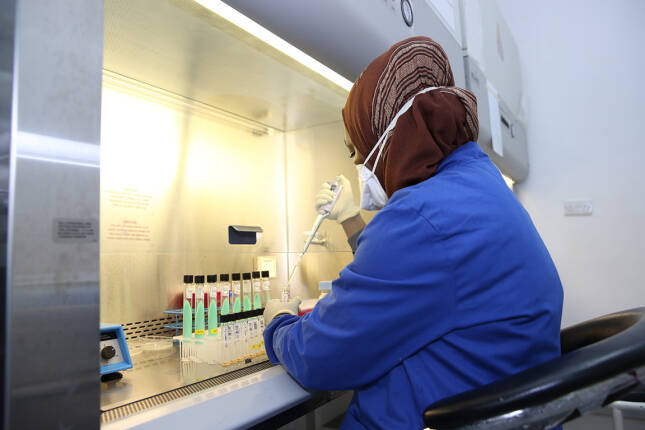
Read the article
on EDCTP’s sustained response to the COVID-19 pandemic
The programme has also made multiple efforts to provide opportunities to countries with less well-developed research bases. Regional Networks of Excellence have incorporated institutions from such settings in their networks and the Senior Fellowship Plus scheme enables experienced researchers to nurture colleagues from less well-established institutions. Efforts have also been made to ensure researchers from French- and Portuguese-speaking countries are not disadvantaged.
The full impact of EDCTP2 has yet to be felt, as many studies are still completing and analysing data. Even now, however, it is clear that it has delivered on its promises, and has laid a solid foundation for even greater progress during the expanded Global Health EDCTP3 programme.
The Global Health EDCTP3 Joint Undertaking was formally launched in 2022 and issued its first calls for proposals.
EDCTP is proud to have established valuable strategic partnerships with industry partners through the EDCTP2 programme and they have proven to be essential partners in EDCTP-supported product–focused research, identifying research gaps and niches and helping to shape EDCTP’s investment strategy. EDCTP2’s successor programme, Global Health EDCTP3, will continue to broker productive and sustainable partnerships – promoting networking and building relationships with multiple private- and public-sector organisations. It will also consolidate EDCTP’s investment in late-stage product development, using more flexible and long-term approaches to establish strategic alliances with product developers, including both small- and medium-sized enterprises, large pharmaceutical companies, and product development partnerships. To this end, we look forward to increased interaction with and engagement of existing and new strategic partners in Global Health EDCTP3, with the aim to achieve synergies and even greater impact on product development in the global health field.
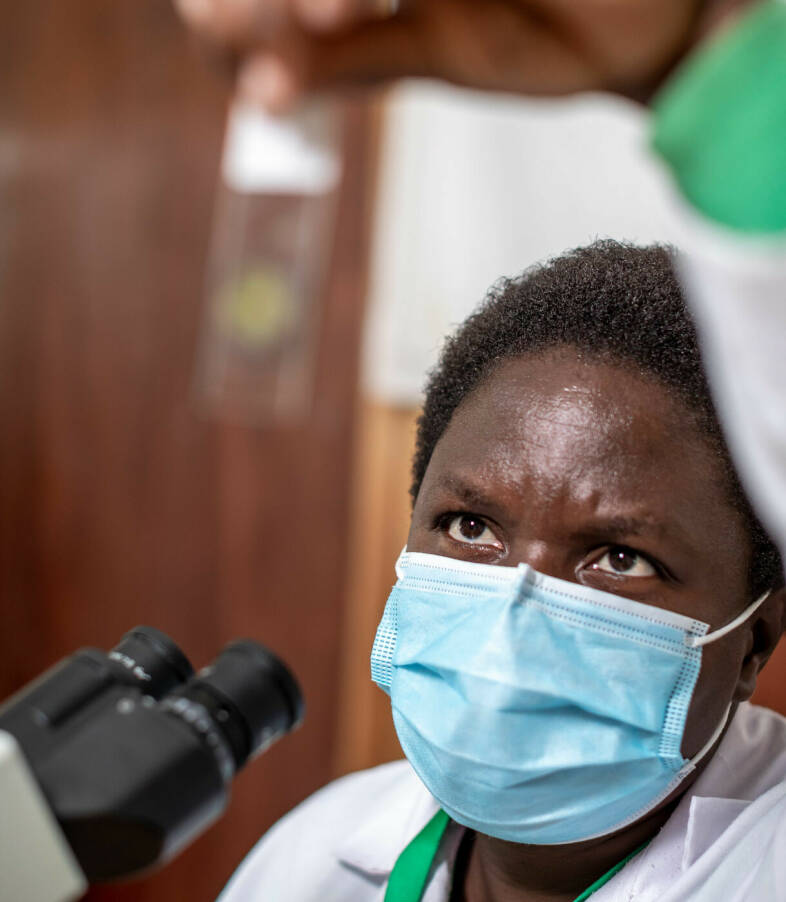
The evaluation also noted that the EDCTP2 programme has been highly effective at ensuring that projects are completed and generate data (although the COVID-19 pandemic inevitably delayed many projects). As illustrated elsewhere in this Annual Report, as projects conclude and results are disseminated, it is clear that EDCTP is having a major impact on the development and implementation of new medical interventions for poverty-related diseases, including vaccines, drugs and diagnostics.
Its unique focus on capacity building has also had tangible benefits. As summarised in a recent report, EDCTP2 has supported more than 362 fellows, at all stages of a research career, including influential research leaders and up-and-coming scientific talent. The EDCTP fellowship programme is ensuring that African researchers can develop their careers within Africa, while remaining connected to global knowledge networks. This funding has an important multiplier effect, as each fellow supervises and mentors other researchers, growing the size of the science base.
In addition, the programme has taken a holistic view of capacity building, focusing also on creating a supportive environment for high-quality clinical research. It has achieved substantial progress in advancing ethics review and regulatory authority capabilities in sub-Saharan Africa, which will be essential if the number of clinical trials organised in the region is to grow further.
Notably, in its supplementary report on implementing World Health Assembly resolution WHA75.8 on building clinical trial capacity, WHO highlighted EDCTP2 as an initiative that had successfully developed capacities and supported local leadership in many African countries.

Interview:
Dr Lutz Hegemann
We asked Dr Lutz Hegemann, President of Global Health & Sustainability at Novartis, how Novartis has contributed towards EDCTP-funded activities, and how we accelerate innovation while making sure that these innovations are accessible to the populations that need them the most.
We asked Dr Jutta Reinhard-Rupp, former EDCTP Scientific Advisory Committee member and Head of the Global Health Institute at Merck, how funders and industry can work together to define research priorities and ensure sustainability of the development process.
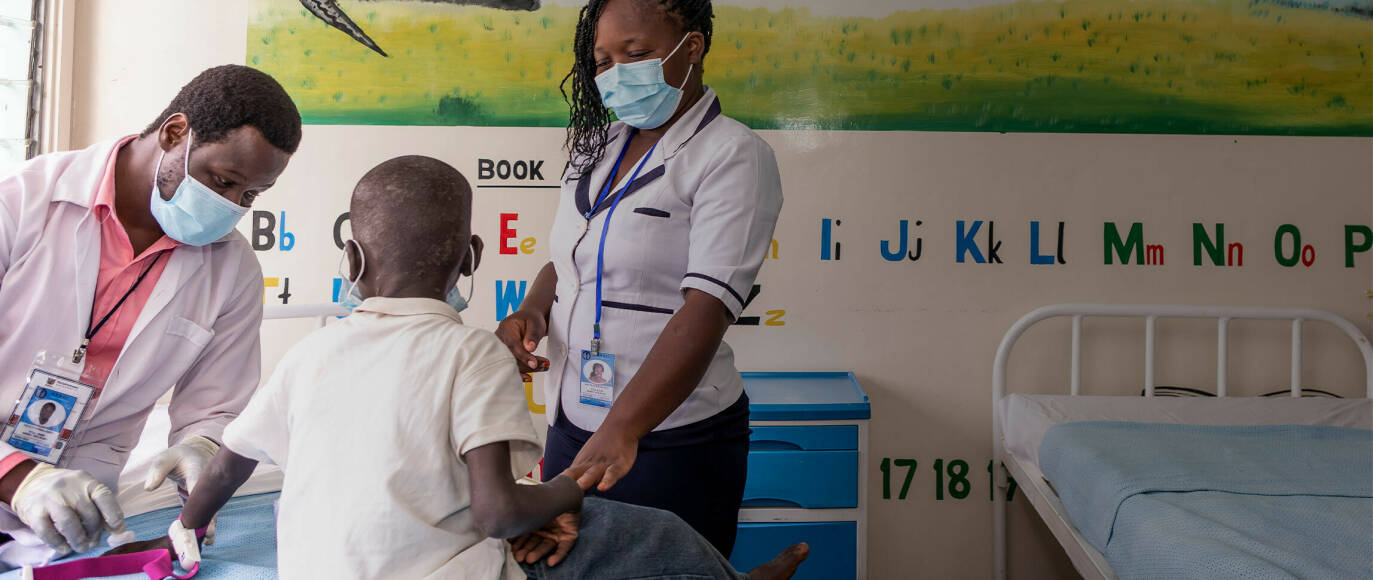
EDCTP’s collaboration with industry partners on joint initiatives has so far been largely focused on improving research capacity in sub-Saharan Africa, primarily through provision of fellowships. GlaxoSmithKline and Novartis have been major partners in this respect, supporting multiple calls for proposals on Senior Fellowships and Capacity Development Fellowships, one of which as a joint initiative with Fondation Botnar. These funding partnerships have shown great value in bridging specific research gaps, with the funding priorities of both partners enabling EDCTP to support the career paths of researchers working with vulnerable populations such as on maternal, child and adolescent health and in niche areas such as co-morbidities between poverty-related diseases (PRDs) and non-communicable diseases (NCDs).
Industry partners have also provided in-kind contributions to EDCTP2 through the EDCTP-WHO/TDR joint calls on Clinical Research and Product Development Fellowships which were regularly launched in 2014-2019. GlaxoSmithKline, Janssen Pharmaceutica NV, Novartis Institute for Biomedical Research (NIBR), Novartis Pharma AG, Merck KGaA and Pfizer have all participated as host institutions offering placements for successful fellows to obtain first-hand experience on different aspects of product development.
The evaluation praised the programme’s adaptability and its responsiveness to the needs of populations and health research systems in sub-Saharan Africa. This has been underpinned by strong African representation in all aspects of its governance, as well as extensive consultation and partnerships with African stakeholders.
EDCTP2 was also noted to have established a clear niche in the global health ecosystem, through its focus on late-stage clinical trials and implementation research, which are generally less well supported by other funders, and through its prioritisation of under-served populations. These include women and pregnant women, people with co-infections (including HIV infections) and co-morbidities, and children and adolescents.
We asked Professor Marcel Tanner, president of the Swiss Academy of Sciences and EDCTP High Representative for Europe, to describe EDCTP’s strategy on industry involvement in global health product development and to provide his views on opportunities for increased engagement in the future.
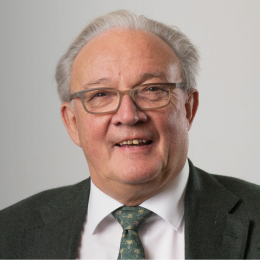
Interview:
Prof. Marcel Tanner
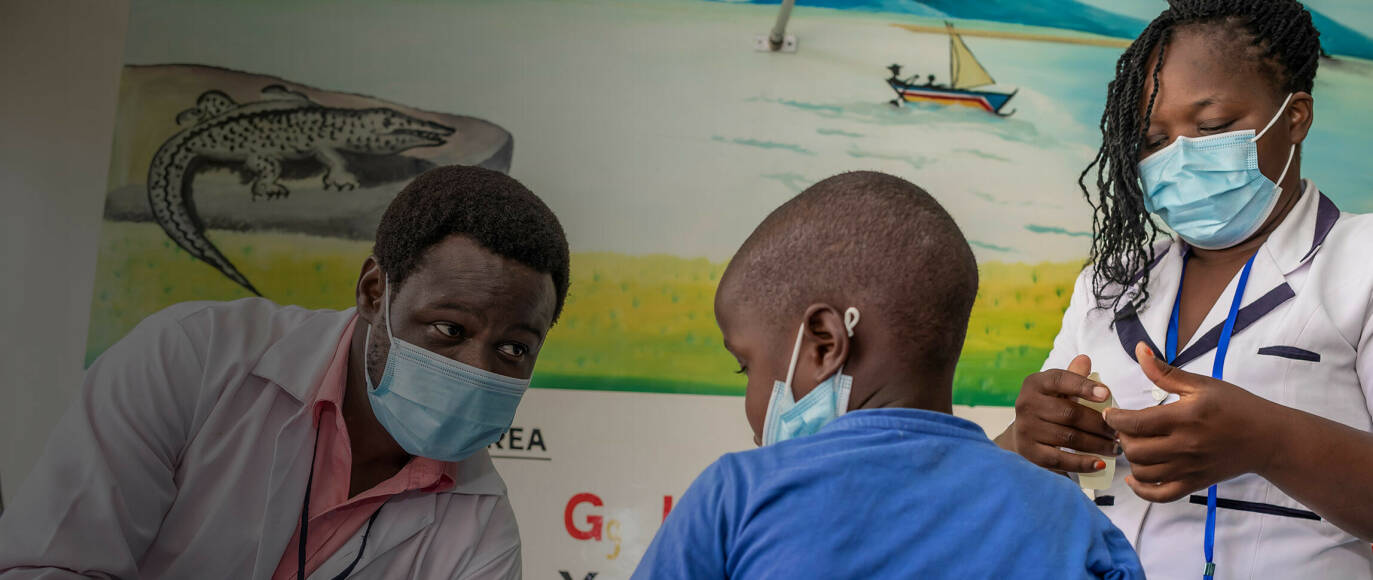
Over the past two decades, EDCTP has funded collaborative research partnerships that have advanced multiple much-needed interventions against poverty-related diseases affecting sub-Saharan Africa. Collaborative research culture has been grown and nurtured through four regional Networks of Excellence covering half of the countries in sub-Saharan Africa. EDCTP has also made critical contributions to the development of research capacity in the region, particularly through its comprehensive fellowship programme. Seven more countries joined the EDCTP Association in 2023 for participation in Global Health EDCTP3 – Benin, Guinea-Bissau, Liberia, Malawi, Sierra Leone, Somalia and Zimbabwe. This brings the total number of Association member countries to 43, including 28 African countries.
An independent evaluation of the EDCTP2 programme (covering the period 2017–2021), commissioned by the European Commission and published in 2023, provided a highly positive assessment of EDCTP’s activities across a range of criteria including relevance, coherence, efficiency, effectiveness and added value. The report highlighted EDCTP’s contributions towards the building of equitable research partnerships between Europe and sub-Saharan Africa, and how EDCTP’s activities have underpinned major advances in health and strengthened research capacity in sub-Saharan Africa.
EDCTP has always positioned itself as a partnership of equals, and this covers both the governance of the programme – where European and African partners have equal status – and in the operations of individual research collaborations. This is a highly effective model, and one that has helped to deliver results that could not have been achieved by partners working alone.

